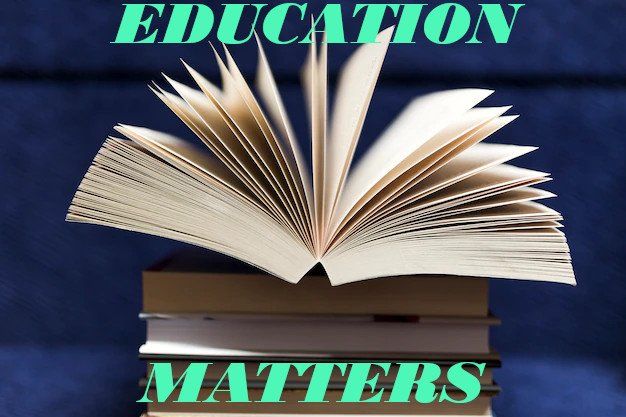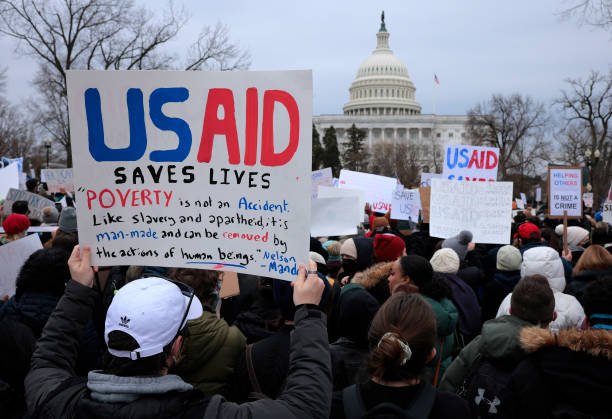Education Matters: Redefining Success in Education

In our last discussion in the “Education Matters” series, we explored the role of teachers in the educational landscape, highlighting the challenges faced by educators in Nepal and advocating for greater respect, robust teacher training, and societal recognition of this crucial profession. As I continue to untangle the complexities of Nepal’s education system, join me in challenging conventional norms and advocating for meaningful changes in education.
The Scoreboard Syndrome
The recent Secondary Education Examination (SEE) results have triggered a flurry of celebration within educational institutions and enthusiasts, prompting them to publicly declare their perceived victories. These institutions revel in statistical success, with the percentage of bottom-performing students dropping to 0.45% and high-performing students increasing to 4.63%. This achievement is widely shared across social media platforms and media interviews, showcasing the ‘triumph’ of the education system. However, as we explore the unsettling Scoreboard Syndrome in our ongoing “Education Matters” series, we need to question whether such statistics genuinely represent a victory.
School education in our legal system spans up to Grade 12. The disproportionate emphasis on the SEE, taken by 10th graders with two more years of schooling left, perplexes me. Moreover, the SEE results do not guarantee students the freedom to pursue any major they desire, or school they want to join (if applicable); they still need to pass the entrance exams of their chosen schools, which require intense dedication and effort. On the other hand, our previous discussions cast doubt on the SEE’s efficacy in assessing students’ knowledge, aptitude, and real-life abilities. Does this exam provide a scientific evaluation of 10th graders’ capabilities? Unfortunately, the answer is a big ‘NO’. Instead, it perpetuates an unconscious bias, favoring ‘elite higher secondary boarding schools’ that consistently attract high-performing students, who are then showcased as trophies to attract more such aspirants, as well as students from affluent families who can afford hefty fees. These institutions earn enough to perpetuate the Scoreboard Syndrome, profiting while the identities of the high-scorers fade quickly—I struggle to recall any top performer from the last ten SEE or School Leaving Certificate cycles.
This culture fails to acknowledge the diverse strengths of students, leading to the misidentification of successful students based solely on a flawed assessment system. I know many individuals who, despite not being academically successful during their school days, have thrived in various fields such as business, politics, and public service. Some of them couldn’t even pass the then SLC. This observation underscores the need to revisit our belief system and the way we evaluate student success. One way of doing so is to view the SEE or any other summative assessment as a regular part of academic pursuit rather than a definitive measure of student success. These exams need to undergo a rigorous psychometric process that accounts for various confounding factors and minimizes the chances of cheating. Furthermore, students and parents should hold authority over their test scores; even teachers should not be allowed to discuss individual student’s test scores in class, let alone publicize them on social media.
Impact on Students
However, the fallout from this Scoreboard Syndrome goes beyond just a distorted representation of student achievement. It has serious implications for the student and parents alike, profoundly impacting their well-being and educational journeys.
High-performing students, initially motivated by public acknowledgment of their achievements, may face overwhelming pressure to consistently excel. This can breed stress, anxiety, and burnout, with mental health concerns escalating if they feel societal pressure to pursue prestigious but possibly unsuitable higher education majors and careers afterward. Dissatisfaction, underperformance, and dropout can ensue, accompanied by a fear of failure and potential public shaming. Alarmingly, the dread of underachieving can drive some to unethical behavior to maintain their perceived success.
Low-performing students face even more severe consequences. Public disclosure of grades can foster an environment of shame and stigmatization, eroding self-esteem and perpetuating feelings of failure and hopelessness. Equating academic failure with life failure can entrench negative self-perceptions and potentially lead to more serious mental health issues, including depression and, in extreme cases, suicidal ideation—a grim reality that is all too familiar in Nepal. Rather than public humiliation, these students generally need more extensive support and resources to enhance their academic performance.
Beyond the individual implications, the practice of publicizing grades can lead to broader systemic issues within the educational environment. It fosters unhealthy competition among students, parents, and an overemphasis on academic achievement, potentially sidelining critical facets of education like critical thinking, creativity, social skills, and physical health. It can also result in an undue focus on the scores themselves, instead of recognizing the diverse learning needs, unique strengths & weaknesses of individual students. Furthermore, this raises privacy concerns, with potential misuse of sensitive data for purposes beyond academic evaluation, including bullying or identity theft.
In conclusion, potential negative outcomes must be carefully considered before implementing policies that publicize student grades and test scores at any level or grade. It’s crucial to remember that academic performance is influenced by many factors beyond the students’ individual effort, including teacher quality, parental involvement, socioeconomic status, and available resources. Blaming students solely for their academic shortcomings oversimplifies the complexities of educational achievement. The success or failure of a student is a reflection of the school, teachers, parents, and society at large. As such, like many developed countries, Nepal should also foster educational environments that emphasize holistic student development and well-being, rather than focusing solely on students’ test scores.
International Perspective
The international approach to handling students’ assessment scores provides an insightful perspective, drawing a stark contrast to Nepal’s current practices. For instance, in the United States, the Family Educational Rights and Privacy Act (FERPA) established in 1974 ensures a stringent guard on student information. This law not only protects the students’ personal details and academic records from public dissemination but also limits parental access to the child’s academic data once they reach 18 years of age. Parents must secure consent from their children to access these records. A similar level of privacy is upheld when dealing with assessment scores, as the results of both summative and classroom assessments are deemed confidential. Educational professionals, including teachers and professors, are strictly prohibited from sharing this data without explicit consent from the students (Source: U.S. Department of Education).
Furthermore, adherence to these privacy norms is taken very seriously in the United States, with mandatory FERPA training required for anyone working within an educational institution. This annual training, followed by a mandatory assessment, is a prerequisite for anyone handling student data, thus ensuring a robust and uniform application of privacy practices across various educational entities. Violations of these norms can result in severe repercussions.
In comparison, Canada’s Privacy Act and the Personal Information Protection and Electronic Documents Act (PIPEDA) also enforce a consent-based approach to the collection, use, and disclosure of personal data, including test scores (Source: Office of Privacy Commissioner of Canada). Similarly, European Union’s General Data Protection Regulation (GDPR), and Australia’s Australian Privacy Principles (APPs), embedded in the Privacy Act 1988, offer stringent protection of student data, empowering individuals with the right to access, correct, and at times, erase their data (Sources: European Commission & Office of the Australian Information Commissioner).
These international examples emphasize the essentiality of privacy laws in safeguarding students’ assessment scores and highlight the need for similar regulations in Nepal, promoting more secure and respectful handling of students’ educational records.
Privacy and Data Protection Law in Nepal
The Privacy Act, 2075(2018) and the Individual Privacy Regulation, 2077 (2020) serve as the legal frameworks for the privacy and protection of personal information in Nepal. The law provides broad protections for a variety of personal data, including identifiers such as caste, ethnicity, birth, religion, educational qualifications, biometric information, criminal background, and professional opinions. The Act also sets forth the procedures for the collection, storage, processing, use, analysis, and preservation of personal information of individuals residing in Nepal, with a requirement of informed consent from the individual and a limitation of data use to the purpose for which it was collected.
In the context of education, these laws imply that schools must obtain necessary consent to collect, use, and protect student data, including test scores, for defined purposes such as academic assessment or progress reporting. However, Act’s provisions on students and educational data are implicit, not explicit, leaving room for interpretation. The Act also outlines individual rights to be informed about data collection and use, access personal data, and rectify inaccuracies, implying that students (or their parents/guardians) can review their test scores and seek corrections.
Unfortunately, the Act doesn’t specify a data protection authority for regulation and enforcement, potentially leading to inconsistent application of the law. The Act treats privacy violations as criminal violations punishable by imprisonment, fines, or both and allows victims to claim compensation. This means unauthorized access or use of personal data, such as test scores, would be a serious violation of the law. Thus, while Nepal’s Privacy Act provides a structure for personal data protection, its implementation and interpretation in specific contexts, such as education, may reveal areas for further clarification or enhancement.
Redefining Success
Education is much more than a journey of scoring high on exams; it’s a voyage of personal growth, the discovery of individual strengths, and nurturing diverse skill sets. Our perspective of success must advocate for this broader, more holistic view, focusing on fostering creativity and critical thinking, promoting collaboration and effective communication, nurturing emotional intelligence, and instilling resilience and adaptability. Recognizing and celebrating the diversity of student abilities and interests is essential in this process, as we need to acknowledge that success does not conform to a single, universal standard.
A shift in assessing student learning is also vital to this redefinition. This includes embracing more formative assessments over traditional summative ones, which provide continuous feedback to improve teaching methods and enhance student learning. Furthermore, the commitment of educators, parents, and the larger community is essential for endorsing this broader definition of success and course of action. They play an important role in shaping the educational culture and perceptions of success, and their unwavering support for this shift.
In policy terms, education must reflect this paradigm shift. It should be prioritizing an education system that balances knowledge acquisition with holistic development, recognizing success’s multidimensional nature. As we redefine success, we can foster an environment that equips students with the necessary skills and mindset for lifelong learning and success beyond the classroom. The need of the hour is an education system that not only respects the privacy and individuality of each student but also recognizes and appreciates these unique paths to success.
A Call for Change
As we address this topic, it is crucial that education must be viewed not merely as a channel for academic advancement, but as a journey that fosters personal growth and discovery, nurtures diverse skills, and expands horizons beyond traditional academic metrics. Particularly for Nepal, our quest for educational excellence should never compromise the individuality and well-rounded development of our students in favor of numerical dominance.
All stakeholders in our education system – educators, policymakers, parents, and the students themselves – must actively participate in dialogues to redefine our parameters of success. Moving away from an overemphasis on test scores and grade rankings, we should appreciate the multitude of skills and competencies our students develop, such as resilience, critical thinking, empathy, and social skills, considering these as significant indicators of success.
In terms of policy, our practices must reflect this nuanced understanding of success. The tendency to prioritize numerical victories and public disclosure of test scores should give way to a culture that values individual growth and personal progress. In line with international standards, we must bolster legal protections for student data, upholding the privacy and dignity of students by ensuring their test scores are confidential and used exclusively for personal development.
Comparing Nepal’s current practices with international norms, we notice a stark contrast, especially concerning privacy laws for the protection of student assessment scores. It is essential that we learn from these examples and fortify our policies accordingly. Our Privacy Act, while a promising start, needs to be revisited and enhanced to guarantee the privacy of student data.
As we move forward, let’s refocus our assessment methods, prioritizing formative evaluations over summative ones, placing feedback and improvement above competition and rankings. Let us recognize the diversity of student abilities and interests, understanding that success doesn’t conform to a universal template. By redefining success, we strive to create an environment where every student thrives, where success is multi-dimensional and individually defined. Let this be our national aspiration.
I want to extend my sincere gratitude for engaging with me in this critical dialogue about Nepal’s education. In my forthcoming issue, “Education Matters: Rethinking Assessment”, we’ll venture further into the pressing topic of assessment reform in Nepal. Look forward to a comprehensive exploration of how enhanced, integrated evaluation methods can cultivate a more authentic and enriching learning environment.






Leave Comment